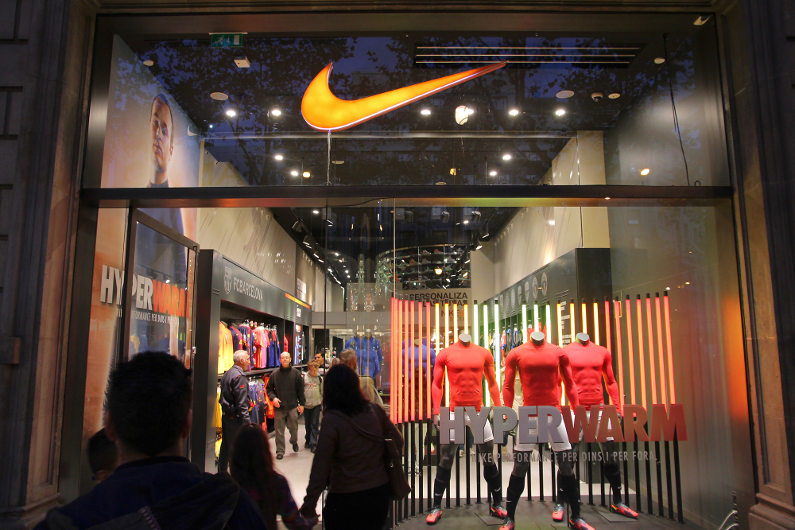Loyal customers are extremely desirable for modern brands. The probability of selling a product or service to an existing customer is 60-70%, with 65% of a company’s business said to come from existing customers. Companies such as Apple are the epitome of brand loyalty, with the tech company having a core of followers who will solely buy their products and stick with them throughout their lifetime.
Here, we will look at exactly what it is that makes customers stay loyal to a brand.

Customer service
Customer service is inherent to building a loyal base of consumers. If a brand or company provide you with consistent quality service, you’ll be more likely to stick with them. According to a Yotpo study, 23% of us blame poor customer service for choosing a different brand. This shows that people’s perception is crucial. Often, companies will provide a personal approach in a bid to entice the customer. A prime example is Lookers Group, whose slogan is ‘For You, For Life’. This indicates that the brand has your best interests at heart by saying ‘for you’ and they want to stick with you throughout your driving life experience — ‘for life’. Car dealerships often use smart, personalised reminders of their car servicing plans for their clientele, to keep themselves relevant in the minds of the customer — no matter how long ago they drove away in their new vehicle.
It’s more important than ever for brands to develop a solid understanding of the needs and expectations of their customers. Businesses are there to provide a simple service. If they can’t meet a user’s expectations, no matter how high, then they will ultimately look for answers and services elsewhere. Customer service is crucial to gaining a customer’s trust and this helps build loyalty.
Trust
In a study carried out by InMoment, three-quarters of consumers stated that they have held brand-specific relationships for more than 10 years, and despite the possibility of finding a cheaper alternative the service and product proved favourable. A customer will often stick with a brand or product because they know what to expect. That trust factor has been built up and enables them to know exactly what they need to. The fear of the unknown is a major reason people would not choose a new brand or service in case they aren’t happy with their choice.
Businesses can take some simple steps towards becoming more trustworthy. Firstly, they must prepare with the customer in mind. This will help to develop a clear client-focused objective and show the customer that a business understands their needs. It’s also imperative to be honest, and businesses should not offer a service or product that is not entirely what the customer is expecting. This is a sure-fire way to breaking any level of trust.
A trustworthy asset of any company is their uniform as it is able to portray a level of high importance. One example of this is Virgin, in which their airline uniforms strongly represent the brand image they wish to portray and are easily identified across their industry.
As the age-old saying goes: “Trust is the easiest thing in the world to lose, and the hardest thing in the world to get back.”

Nostalgia
Many of us buy in to the value of nostalgia, and brands could certainly pick up on this to help build loyalty. This is because it’s not particularly in the hands of a business and is simply a matter of ease for the customer. This links into the trust factor too, as it’s the fear of the unknown. Many customers stick to what they know and this can be tracked back to family members, such as parents. Past data in the UK found that the public are, on average, more loyal to our banks than we are our marriage vows! The average Brit stays with their bank for 17 years, while marriage in the UK lasts only 11 years on average. Often, this relationship with a bank begins in childhood as a customer follows the bank account that their parents use.
The reminiscent nature of nostalgia is a valuable quality, and it resonates with customers especially in the example of local produce — it ‘reminds them of home’ making it a clever way to communicate marketing messages. No matter how far you move away, home comforts can help a customer stick with a brand that is local to them.
Discounts and special offers
The classic ‘new customer perks’ are enough to put long standing consumers off a brand. Therefore, discounts and special offers are important to make sure that existing customers feel valued. It may seem hard work to keep them happy, but this is a simple way to show them their worth. In many studies, it has come back that discounts and special offers are in fact the top reason for brand loyalty. This is because rewarding loyalty helps to provide a good experience and is beneficial for both parties, meaning they don’t feel the need to shop around.
Undoubtedly, your set of customers will have a set of unique requirements that you’ll need to meet if you want them to remain loyal. Therefore, it’s important to regularly conduct customer feedback to ensure that a business can fully understand what it is their customer base is looking for. Doing so will allow them to have the best chance to retain customers in the future.
Sources
https://smallbiztrends.com/2016/10/customer-retention-statistics.html
https://blog.accessdevelopment.com/2018-customer-loyalty-statistics
https://www.richardson.com/blog/build-trust-with-your-customers/
https://www.theguardian.com/money/2013/sep/07/switching-banks-seven-day


